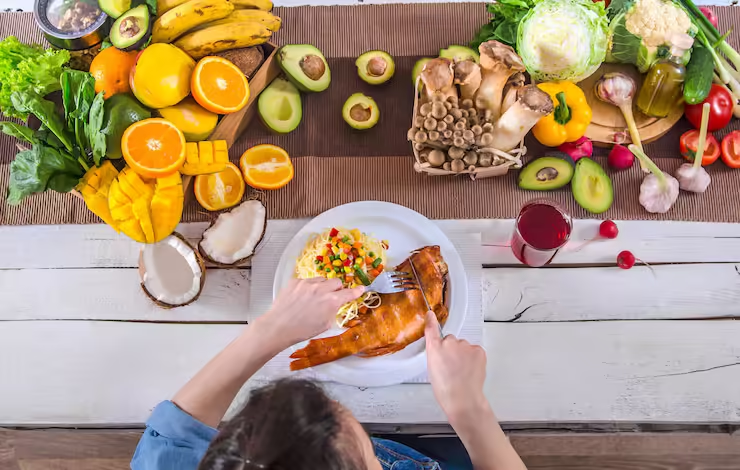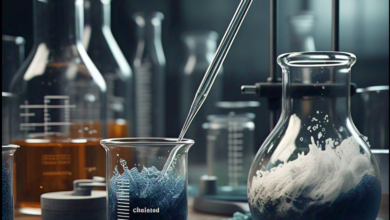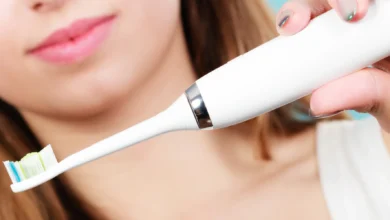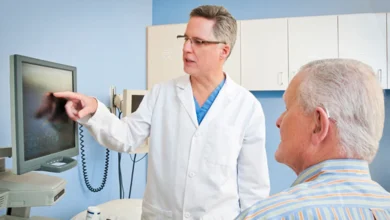7 Foods to Avoid with Diverticulitis NHS: Key Dietary Tips for Better Health

If you or a loved one have been diagnosed with diverticulitis, knowing what to eat and what to avoid can help manage the condition effectively. 7 Foods to Avoid with Diverticulitis NHS can make a big difference in reducing inflammation and preventing flare-ups. Diverticulitis occurs when small pockets in the colon become inflamed, and certain foods can aggravate these pockets, making your symptoms worse.
The NHS offers a variety of guidelines for managing diverticulitis, including a focus on avoiding certain foods. In this post, we’ll explore the 7 foods to avoid with diverticulitis NHS recommends, so you can make informed choices for your health and feel your best. Whether you’re dealing with an active flare-up or trying to prevent one, this information will help guide you towards better digestive health.
What is Diverticulitis and Why Food Choices Matter
Diverticulitis is a condition that affects your digestive system. It happens when small pockets or sacs (called diverticula) in the colon get inflamed or infected. This can cause pain, bloating, and other uncomfortable symptoms. The food you eat plays a big role in how well you manage this condition. 7 foods to avoid with diverticulitis NHS can help prevent flare-ups and keep the condition from getting worse.
When you have diverticulitis, it’s important to eat foods that are gentle on your digestive system. Certain foods can irritate the intestines, making the condition worse. By understanding which foods to avoid, you can reduce your risk of complications and help your body heal. Following NHS guidelines for diverticulitis can guide you towards better health choices.
Understanding the 7 Foods to Avoid with Diverticulitis NHS Recommends
When managing diverticulitis, 7 foods to avoid with diverticulitis NHS help protect your digestive health. These foods are known to irritate the gut and worsen symptoms like pain and bloating. They can also lead to more serious health issues if consumed too often. The NHS recommends avoiding foods that are high in fiber or difficult to digest when you’re having a flare-up.
Some of the foods to avoid include certain seeds, nuts, and popcorn, which can get stuck in the diverticula and cause irritation. These types of food may worsen symptoms during a flare-up, so it’s better to choose easy-to-digest options instead. It’s important to always follow the NHS’s advice to protect your health and avoid complications.
How Eating the Right Foods Can Help Manage Diverticulitis
Eating the right foods is just as important as avoiding the wrong ones. A balanced diet can help reduce the chances of a flare-up. NHS guidelines suggest that people with diverticulitis focus on consuming more fiber when they are feeling better. However, during a flare-up, a low-fiber diet may be better to reduce irritation in the gut.
By avoiding foods like red meat, fried foods, and high-fat snacks, you can reduce stress on your digestive system. These foods can cause inflammation, leading to more pain and discomfort. Eating foods that are rich in nutrients, like fruits and vegetables (when your symptoms are not active), can help maintain a healthy gut. The key is to balance what you eat with how your body is feeling.
7 Foods to Avoid with Diverticulitis NHS: A Closer Look at Each Food

The NHS lists several foods that should be avoided when you have diverticulitis. Understanding why these foods are harmful can help you make better choices for your health. Below are some common foods to avoid during a flare-up:
- Nuts and seeds: These can get trapped in the diverticula, causing irritation.
- Popcorn: The kernels may get stuck in your intestines and increase the risk of inflammation.
- Fried and fatty foods: These are hard to digest and can cause discomfort.
- Processed meats: These can increase inflammation in the gut.
Avoiding these foods can help minimize the risk of further irritation and allow your digestive system to heal. If you’re uncertain, it’s always best to consult with a healthcare provider to tailor your diet to your needs.
The Best Diet for Diverticulitis: Foods to Include and Foods to Avoid
A well-balanced diet can help you manage diverticulitis, but it’s important to know which foods to include and which to avoid. While avoiding the 7 foods to avoid with diverticulitis NHS suggests, it’s also important to include foods that are easy on your digestive system.
Here are some foods you should focus on:
- Low-fiber foods: During a flare-up, foods like white bread, rice, and pasta can be easier on your gut.
- Clear liquids: These are helpful for hydration and reducing irritation.
- Cooked vegetables: Steamed or boiled vegetables are easier to digest and can provide necessary nutrients.
By including these foods and avoiding the irritating ones, you can help manage your condition and feel better faster. A healthy diet is essential to keeping diverticulitis under control and preventing future flare-ups.
Why Avoiding Certain Foods is Crucial for Diverticulitis Relief
When managing diverticulitis, avoiding the wrong foods can lead to fewer flare-ups and better digestive health. The NHS emphasizes that avoiding high-fat and processed foods is key. These foods can trigger inflammation in the colon, causing discomfort and pain.
When you stick to a diet of foods that are easier to digest, you reduce the risk of further irritation. It’s essential to follow these guidelines carefully, especially during a flare-up. This can provide relief and help you maintain better digestive health in the long run.
NHS Tips for Managing Diverticulitis Through Proper Diet
The NHS offers several tips for managing diverticulitis with the right diet. Following these suggestions can help reduce your symptoms and prevent future flare-ups. Eating smaller, more frequent meals can help reduce stress on your digestive system.
Here are some helpful tips:
- Eat more fiber (when not in a flare-up): Fiber helps keep your digestive system regular.
- Stay hydrated: Drinking plenty of water helps your digestion and reduces constipation.
- Avoid alcohol and caffeine: These can irritate the digestive system and make symptoms worse.
By following these simple steps, you can improve your digestive health and reduce the risk of diverticulitis complications.
How to Safely Adjust Your Diet: 7 Foods to Avoid with Diverticulitis NHS

Adjusting your diet when dealing with diverticulitis is important, and it can be done safely by following the NHS guidelines. 7 foods to avoid with diverticulitis NHS are a crucial part of your diet plan to prevent flare-ups. It’s always a good idea to listen to your body and pay attention to which foods cause discomfort.
Gradually transitioning to a low-fiber diet during a flare-up can help reduce symptoms, while slowly adding fiber back into your diet when symptoms improve will keep your digestive system healthy. Always consult your doctor before making major changes to your diet, especially if you are unsure about which foods are best for you.
Conclusion
In conclusion, knowing which 7 foods to avoid with diverticulitis NHS can make a big difference in how you manage the condition. By avoiding certain foods, you can help reduce inflammation, prevent flare-ups, and feel better. It’s important to follow these guidelines to keep your digestive system healthy and avoid any discomfort.
Remember, it’s always a good idea to talk to your doctor or healthcare provider about what’s best for your body. Each person is different, and what works for one person may not work for another. With the right diet and care, you can better manage diverticulitis and enjoy a healthier life.
FAQs
Q: What are the 7 foods to avoid with diverticulitis NHS recommends?
A: The NHS suggests avoiding nuts, seeds, popcorn, fried foods, fatty meats, processed meats, and high-fiber foods during a flare-up to prevent irritation and discomfort.
Q: Can I eat fruits with diverticulitis?
A: Yes, but it’s best to eat peeled fruits and avoid raw, high-fiber fruits during a flare-up. Opt for soft, cooked fruits instead.
Q: Is it okay to drink coffee with diverticulitis?
A: Coffee may irritate your digestive system, so it’s better to avoid it during a flare-up. Stick to water and clear liquids instead.
Q: Can diverticulitis go away on its own?
A: Mild cases of diverticulitis can improve with rest and diet changes, but it’s important to follow medical advice to avoid complications.
Q: How much fiber should I eat if I have diverticulitis?
A: When you’re feeling better, aim to eat a moderate amount of fiber, but during a flare-up, a low-fiber diet may help reduce irritation. Always check with your doctor for specific advice.




